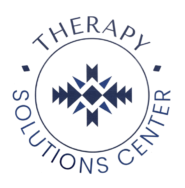
As a psychotherapist, I have seen firsthand the toll that the medical profession can take on individuals. The long hours, high stakes, power and control issues and emotionally charged situations can lead to significant stress and burnout. In this blog post, I will explore the stresses in the medical profession from a psychotherapist’s perspective and discuss how therapy can help medical professionals learn skills to cope with these pressures and ultimately provide better care for their patients.
Stress in the Medical Profession
The medical profession is one of the most demanding professions in the world. Medical professionals are responsible for the lives of their patients and are often required to make life-or-death decisions under extreme pressure. The long hours, high stakes, and emotionally charged situations can lead to significant stress and burnout.
According to a study published in the Journal of the American Medical Association, more than 50% of physicians experience symptoms of burnout. Burnout is a state of emotional, physical, and mental exhaustion caused by excessive and prolonged stress. It can lead to feelings of detachment, cynicism, and a reduced sense of personal accomplishment.
Medical professionals are also at risk of developing secondary traumatic stress (STS), also known as vicarious trauma. STS is a condition that occurs when individuals are exposed to traumatic events indirectly, such as through their work with patients. Symptoms of STS include intrusive thoughts, avoidance behaviors, and emotional numbing.
Medical Professionals Are People Too!
Medical professionals face a variety of triggers when caring for sick people. These triggers can be both physical and emotional reactions. How they respond to these triggers is usually a result of what they learned in their own upbringing or through experience. Here are just some examples of triggers that medical professionals face:
- Intensely stressful and emotional situations: Medical professionals are often exposed to situations that are emotionally charged and stressful. These situations can include dealing with patients who are in pain, dying, or have a poor prognosis.
- Exposure to human suffering and death: Medical professionals are often exposed to human suffering and death, which can be traumatic and emotionally draining.
- Time Pressures: Recent changes in health care, such as ramped-up productivity requirements, increased documentation, and new quality metrics have contributed to significant time pressure for medical professionals. Inevitably, that often affects provider-patient relationships.
- Unique pressures from relationships with the patient, family members, employers and coworkers: Medical professionals are often under pressure to provide the best possible care for their patients while also managing relationships with family members, coworkers, and employers.
- Working conditions with ongoing risk for hazardous exposures such as COVID-19, other contagious infectious diseases, hazardous medications: Medical professionals are often exposed to hazardous materials such as infectious diseases and hazardous medications.
- Demanding physical work and risk of injuries such as from patient handling: Medical professionals may be required to perform physically demanding tasks such as lifting patients, restricting patients’ mobility in order to provide care, or standing for long periods of time.
- Long and often unpredictably scheduled hours of work: Medical professionals may work long hours that can be unpredictable and interfere with their personal lives and relationships.
- Lack of attention to their own medical issues or physical needs. Oftentimes medical providers do not prioritize their own self-care and end up exacerbating their own health issues.
These triggers can lead to significant stress and burnout among medical professionals.
How Therapy Can Help
Therapy can be an effective tool for medical professionals who are struggling with stress and burnout. Psychotherapy is a collaborative treatment based on the relationship between an individual and a therapist. Grounded in dialogue, it provides a supportive environment that allows you to talk openly with someone who’s objective, neutral, and nonjudgmental.
Psychotherapy can help medical professionals learn skills to cope with these pressures and ultimately provide better care for their patients. Here are some ways therapy can help:
- Developing Coping Strategies: Therapy can help medical professionals develop coping strategies to manage stressors in their personal and professional lives. Coping strategies may include mindfulness techniques, relaxation exercises, or cognitive-behavioral therapy (CBT).
- Improving Communication Skills: Effective communication is essential in the medical profession. Therapy can help medical professionals improve their communication skills by teaching them how to listen actively, express themselves clearly, and respond empathetically.
- Addressing Trauma: Medical professionals who have experienced traumatic events may benefit from trauma-focused therapy. Trauma-focused therapy is designed to help individuals process traumatic experiences in a safe and supportive environment.
- Time Management: It can be a game changer to learn skills to manage time better by setting boundaries with others, which many providers struggle to do with friends, family and co-workers. Focusing on this skill is one of the essential time management tips for managing your mental health.
- Promoting Self-Care: Self-care is essential for maintaining physical and emotional well-being. Therapy can help medical professionals develop self-care strategies that promote relaxation, healthy eating habits, regular exercise, and good sleep hygiene.
- Reducing Stigma: It is a fact that many healthcare providers prioritize the care of others over themselves. In many healthcare settings there is often a stigma associated with seeking mental health treatment. The acceptance of therapy as a necessary way to address our overall health can help reduce this stigma by providing a safe space for medical professionals to discuss and address their concerns without fear of judgment or repercussions.
To Better Care For Others, You Must Take Care Of Yourself
The medical profession is one of the most demanding professions in the world. Medical professionals are responsible for the lives of their patients and are often required to make life-or-death decisions under extreme pressure. The long hours, high stakes, and emotionally charged situations can lead to significant stress and burnout.
While individual therapy cannot address systemic or organizational issues contributing to stress, and the systemic changes that are needed within the healthcare industry, it can be an effective tool to support medical professionals who are struggling with the resulting stress and burnout. Psychotherapy is a collaborative treatment based on the relationship between an individual and a therapist that provides a supportive environment that allows you to talk openly with someone who’s objective, neutral, and nonjudgmental, but also can provide healthcare providers who want to make changes some degree of accountability.
By learning and practicing some new coping strategies, improving communication skills, addressing distressing or traumatic situations, promoting self-care, and reducing stigma around mental health treatment in the medical profession through therapy sessions; medical professionals can learn skills to cope with these pressures and ultimately provide better care for their patients.
Feel free to reach out to me if you’d like to learn more about therapy or contact us to get started in getting some confidential help.

